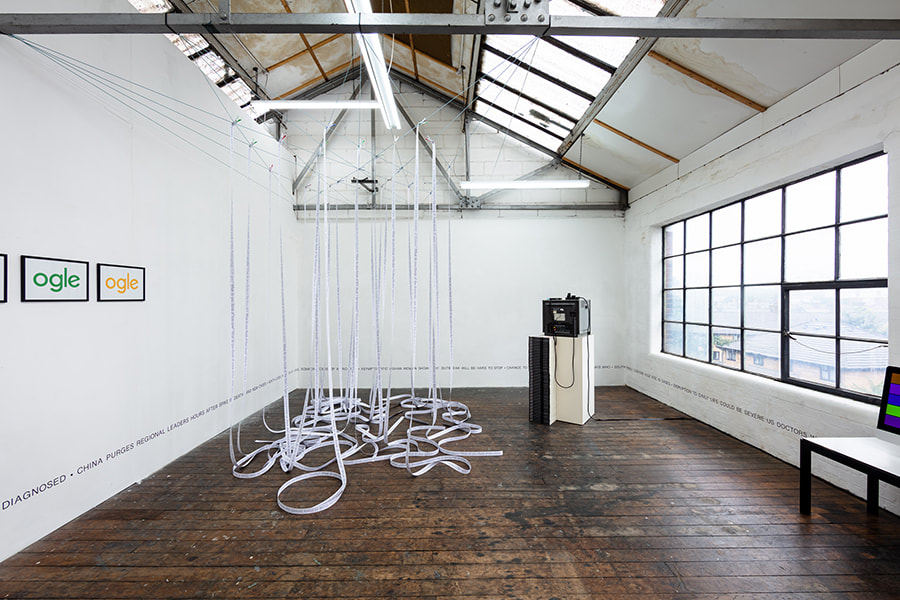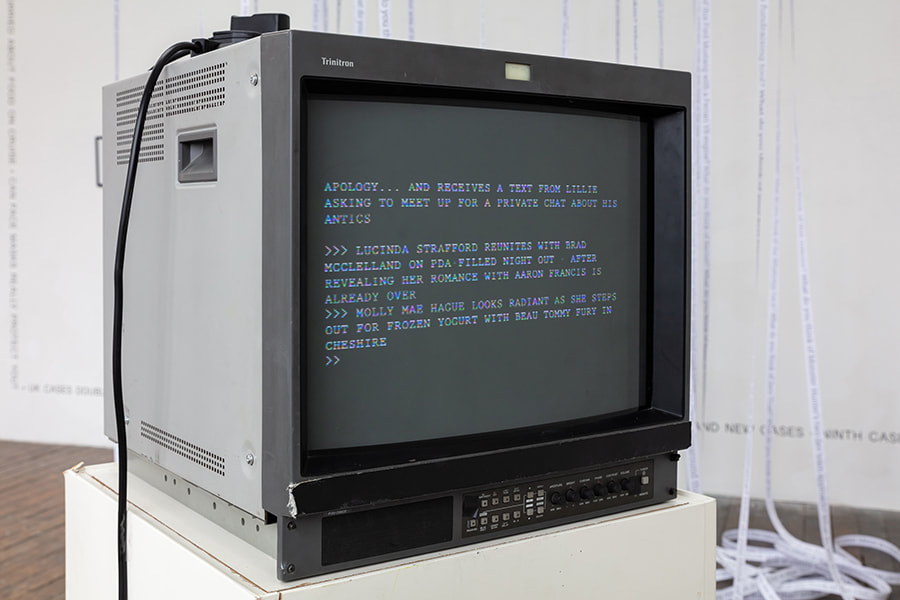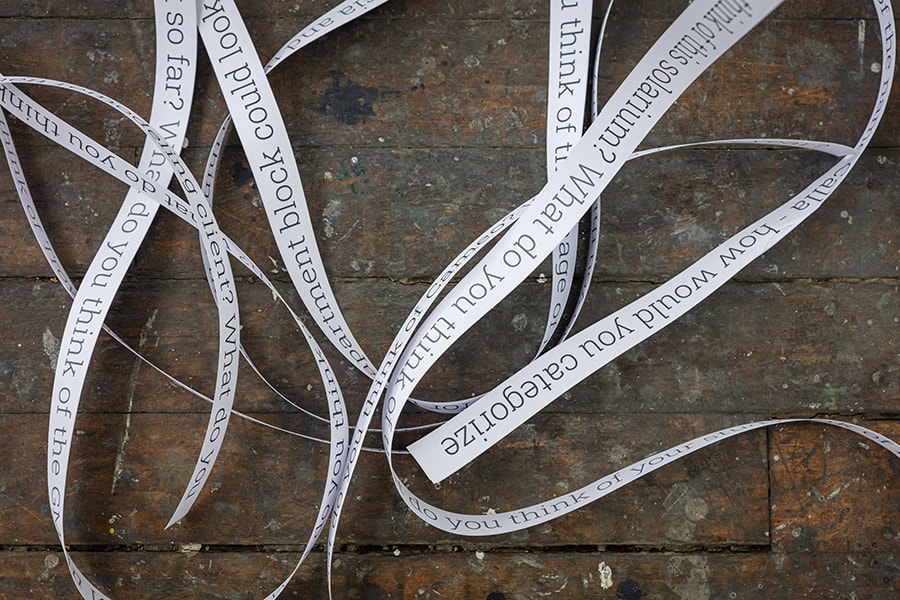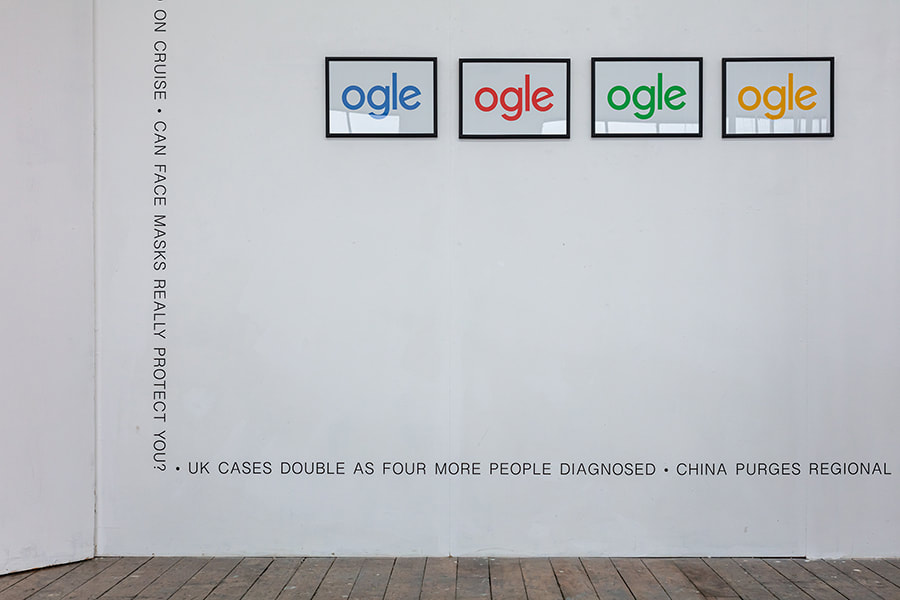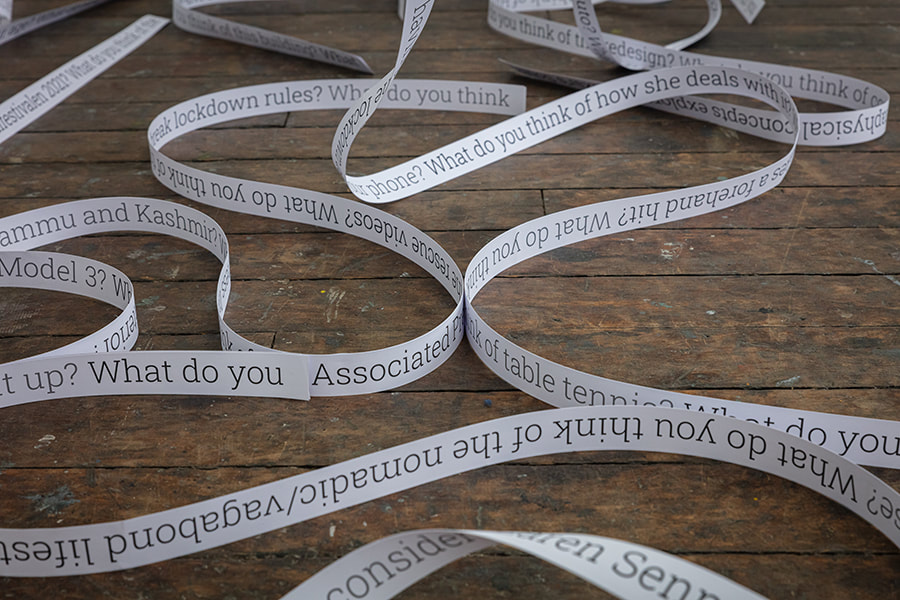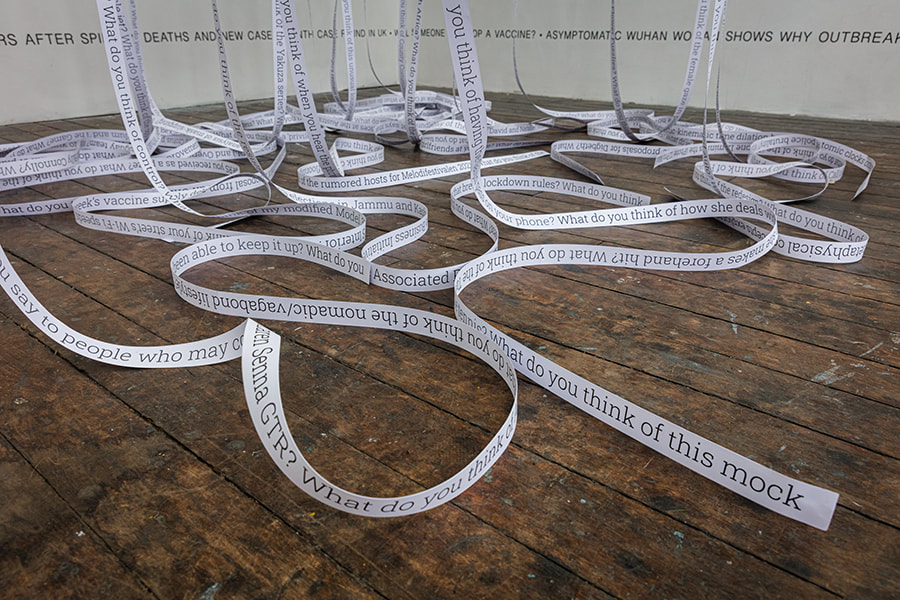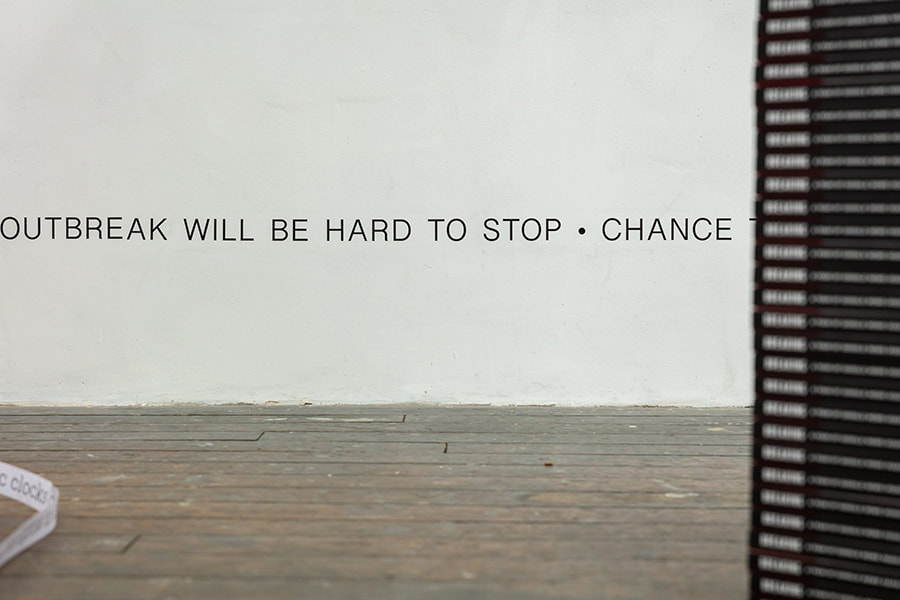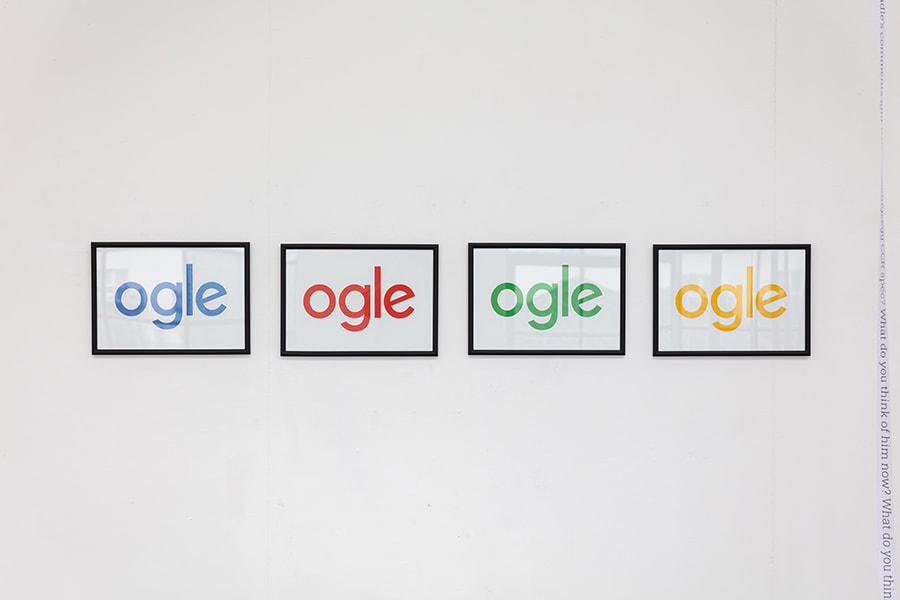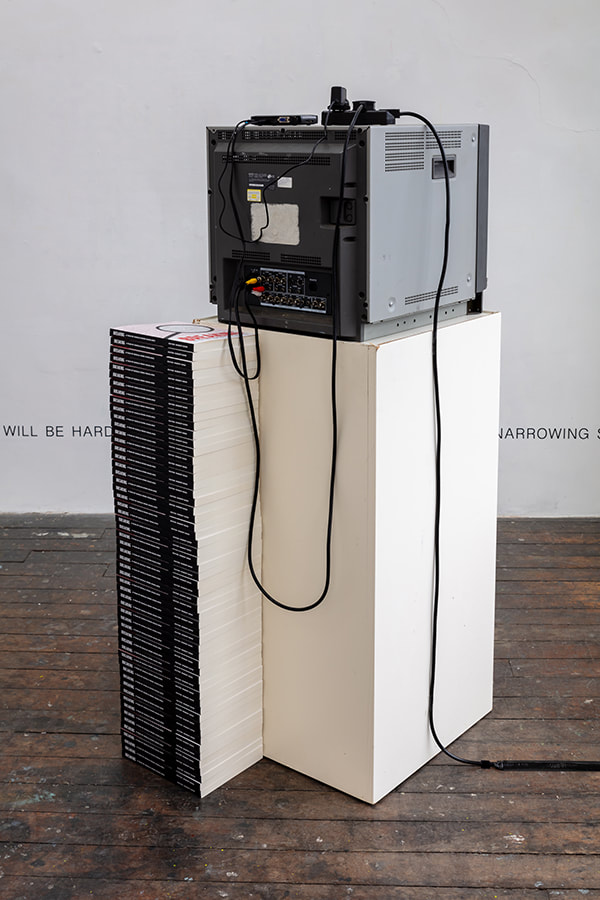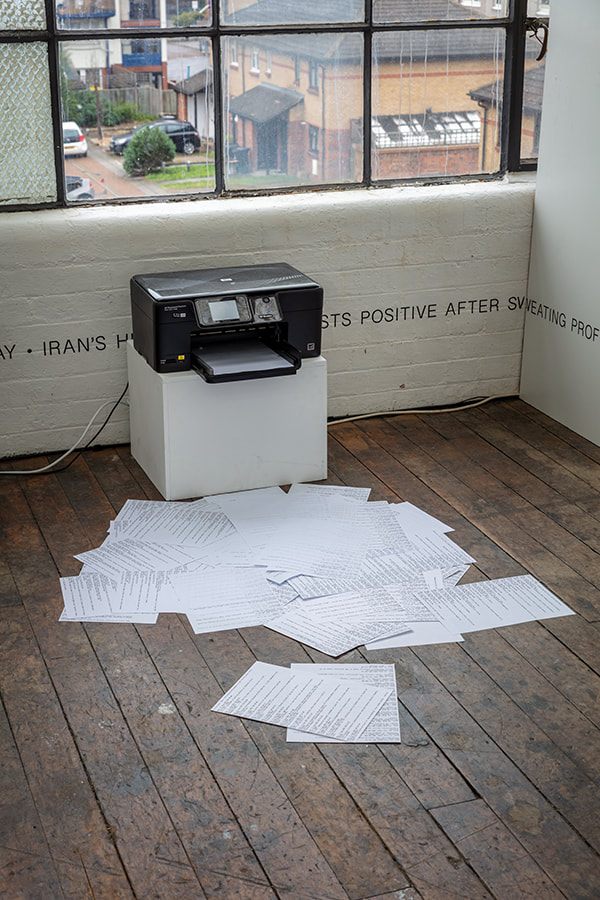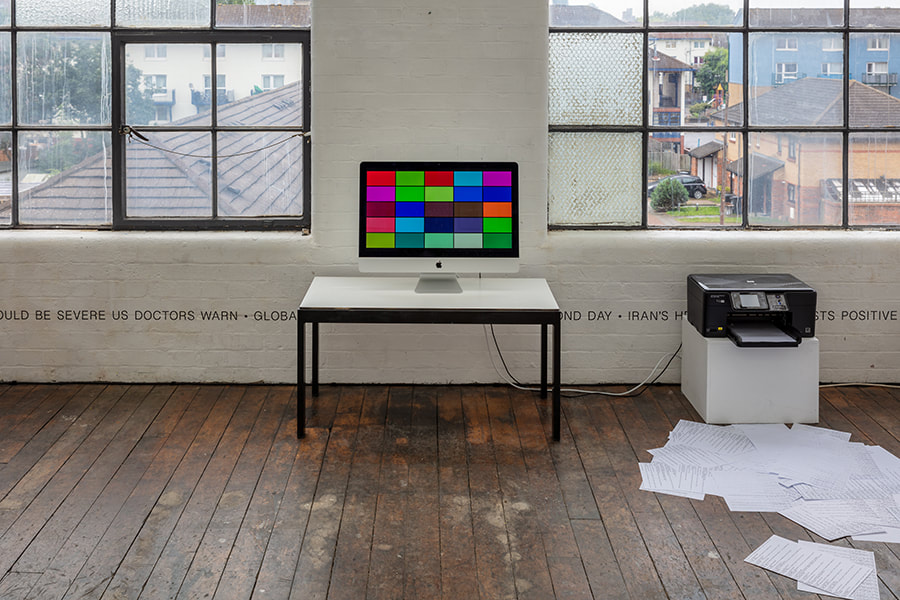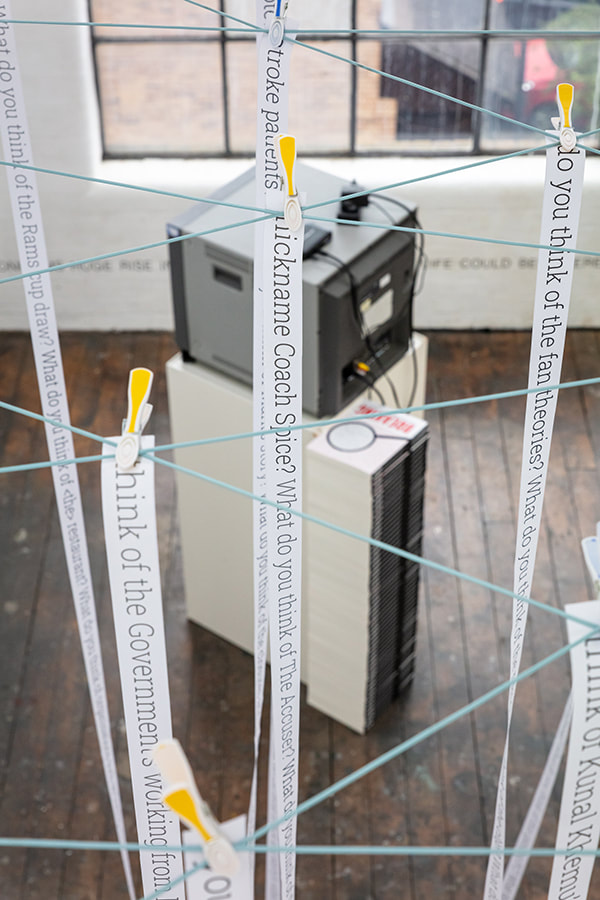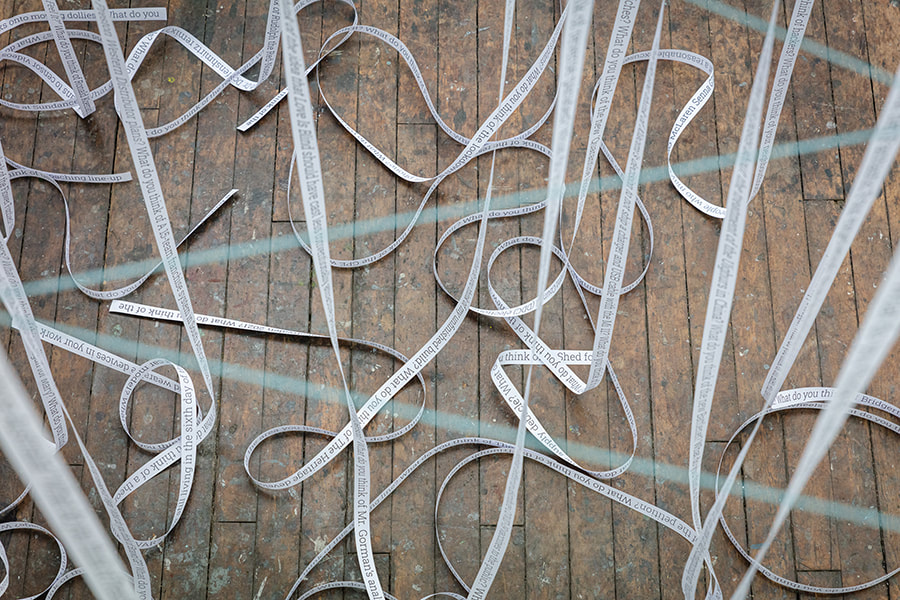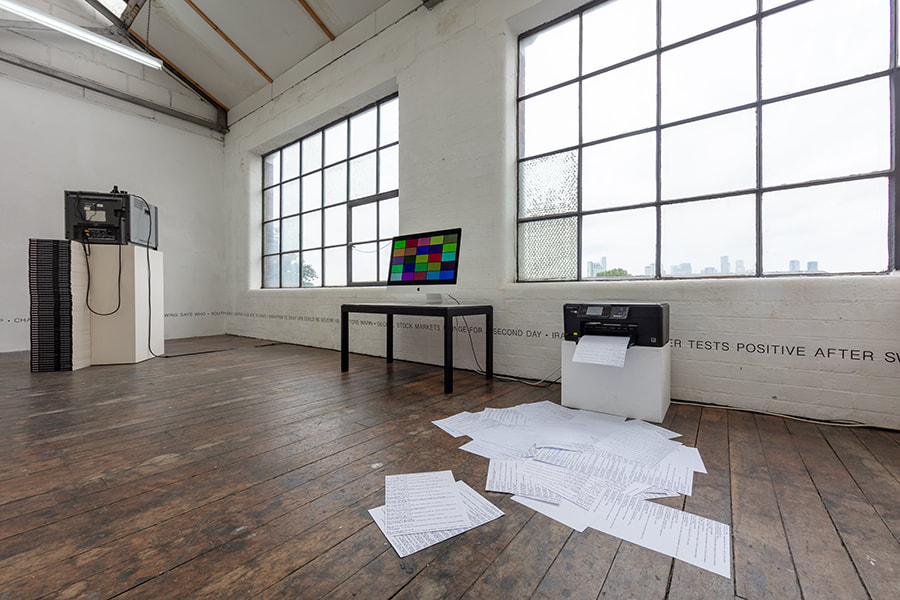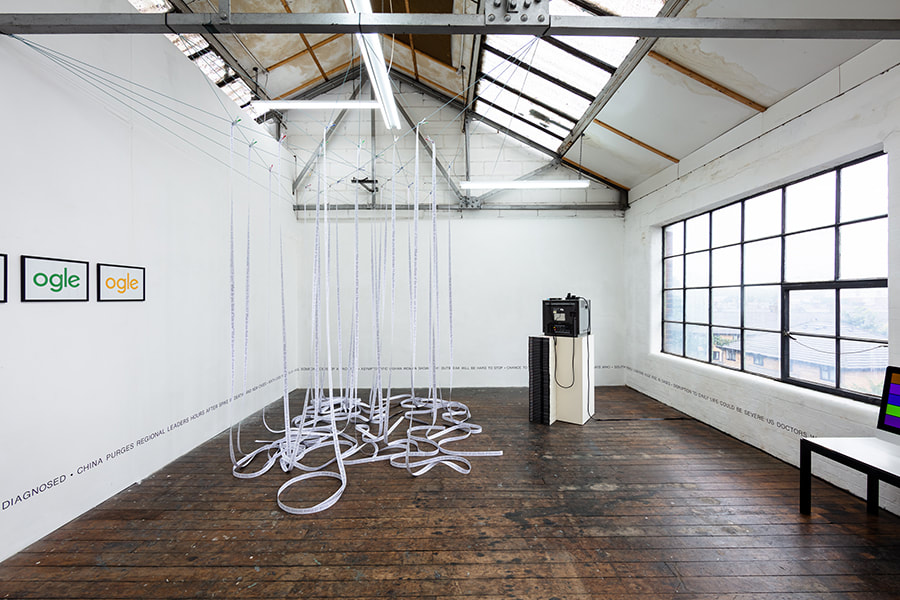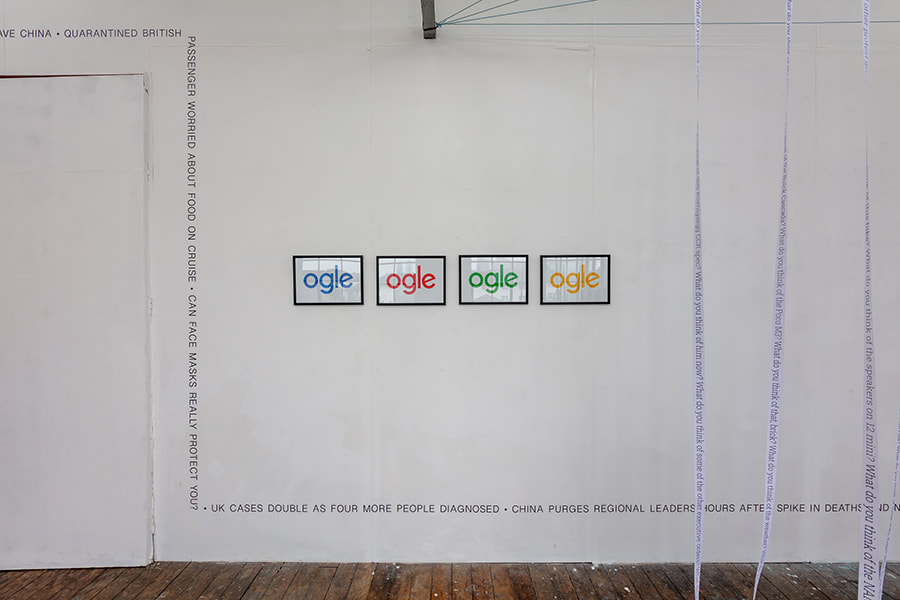What If This Is Who We Are?
2021
Sunday Salon #11
Saturation Point, London
Sunday Salon #11
Saturation Point, London
>>> Click here to view on Saturation Point website
Works Featured
Puff Text (Love Island)
Digital animation
Content from Daily Mail website, monitor, python code, 2021
Viral (Saturation Point edition)
Google News feed, vinyl, 2021
What Do You Think Of When You Hear The Word 'Happy'?
Google automated alerts, paper, coloured pegs 2021
Ogle
Print, edition of 5, 2021
24 Hour News (30 July 2021)
Content from 100 RSS news feeds, python code, paper 2021
Saved
Digital animation
Custom screen saver, python code, 2021
Puff Text (Love Island)
Digital animation
Content from Daily Mail website, monitor, python code, 2021
Viral (Saturation Point edition)
Google News feed, vinyl, 2021
What Do You Think Of When You Hear The Word 'Happy'?
Google automated alerts, paper, coloured pegs 2021
Ogle
Print, edition of 5, 2021
24 Hour News (30 July 2021)
Content from 100 RSS news feeds, python code, paper 2021
Saved
Digital animation
Custom screen saver, python code, 2021
Gallery
Photo credits: Dan Weill
Introductory Text by Richard Ducker
To state the obvious: being online is the ecosystem in which we all live, and with recent events confining us to our homes, it is now a necessity for both social and economic survival. To opt out is to self-isolate as a form of solitary confinement. To opt out is to choose The Cooler, The Hole.
A generation ago to be online was the opposite – it was heroic, adventurous, a journey into the weird and the unknown, the absurd and the fascinating, and it was mostly idealistic in intent. Now, that ecosystem is simply a new form of capitalism, hoovering up our data for sale, its services a means of surveillance, its algorithms a method to control our activities and preferences by defining our fears and desires.
Like capitalism itself it is as malignant as it is apparently necessary. And like capitalism, it has become too big to make sense of, to establish critical distance, to define meaningful traction. Only when it fails is our dependence, and its necessity, revealed. Then, like an addict, we recognise just how emotionally controlled we have become as consumers of news, gossip, rage, desire. Like zombies with ADHD we thrash around looking for purpose and affirmation.
It is into this black mirror that Robert Good delves to find meaning through processes of selection and categorisations of knowledge that lie amongst the debris of clickbait news. From this sound and fury he extracts patterns and structures that might reveal something of our relationship with these expanding empires of data.
Strategies to counter this spectacle of seduction involve the use of outmoded media, or to fold the content in on itself, so that reflexivity reveals its structure, its means of infection. To make sense of this noise, Goode arrests its flow of distraction, to ‘force quit’, so as to be out of time and to find the space in which to assimilate. The use of wall text, Teletext and tickertape become his chosen modes of visual language.
We are genetically programmed to be curious, and are easily distracted, and this is what pulls us down the rabbit holes of clickbait. To make physical, to arrest and distort this distraction is to turn it into contemplation, and so remove its power to seduce. Disabled, power now lies in the jouissance of the text and its occupation of space. Our distraction becomes one of negotiation as the digital takes solid form. Google news headlines becomes a falling column of strips of paper physically occupying the centre of the space. On a monitor a teletext types out Daily Mail Love Island texts while a vinyl text of Coronavirus news headlines circumnavigates the wall. Through these analogue forms of representation we are forced to stop, and consequently consider.
Richard Ducker, 2021

